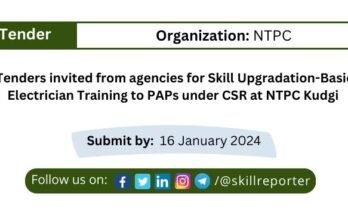As with so many other companies competing for tech talent in a shrinking labor market, IBM is looking for hands-on skill rather than credentials. As more workers continue to pursue self-guided learning, the skills-based model will grow. Bootcamp-style immersion programs are gaining momentum across the country.
With over half a million open tech-related jobs in the U.S. today, according to the U.S. Department of Labor, IBM is shifting its focus from credential-based hiring to skills-based. Their CEO says the company plans to hire 6,000 employees by year’s end, many with unconventional backgrounds.
About 15% of the company’s hires in the U.S. don’t hold a 4-year degree. IBM’s new hiring initiative is part of a larger trend industry-wide to bring on candidates with necessary skills from a wider applicant pool, including high school partnerships, boot-camp style programs and the self-taught.
Last year, IBM promised to invest $1 billion in training and development of their employees over the next four years, promising to hire 25,000. Many openings do not require a Bachelor’s degree. At some of their locations, up to 1/3 of employees do not hold a degree.
One of these private coding academies, The Flatiron School in New York, was recently purchased by WeWork. While they specialize in micro-credentialing for coders, other schools are focusing more narrowly, providing immersion training in AI and VR.
Vivek Ravisankar, co-founder & CEO of HackerRank, was frustrated with the lack of truly qualified candidates that came through conventional, even top-tier channels. “The skills gap is really a pipeline problem. Hiring should be based on skill, not pedigree,” he told HR Dive. With tech skills so in demand and so easily acquired from alternate sourcing, the skills-based model will likely continue to grow.
Note: News shared for public awareness with reference from the information provided at online news portals.


